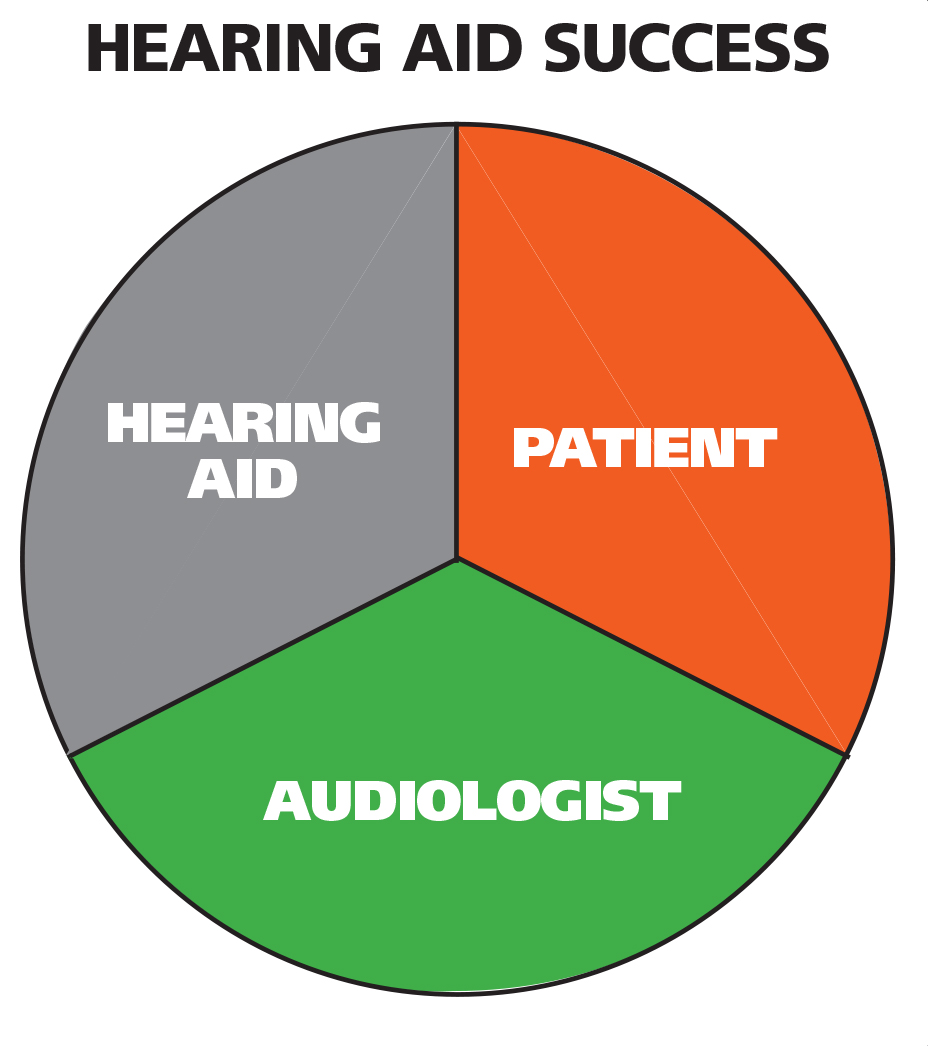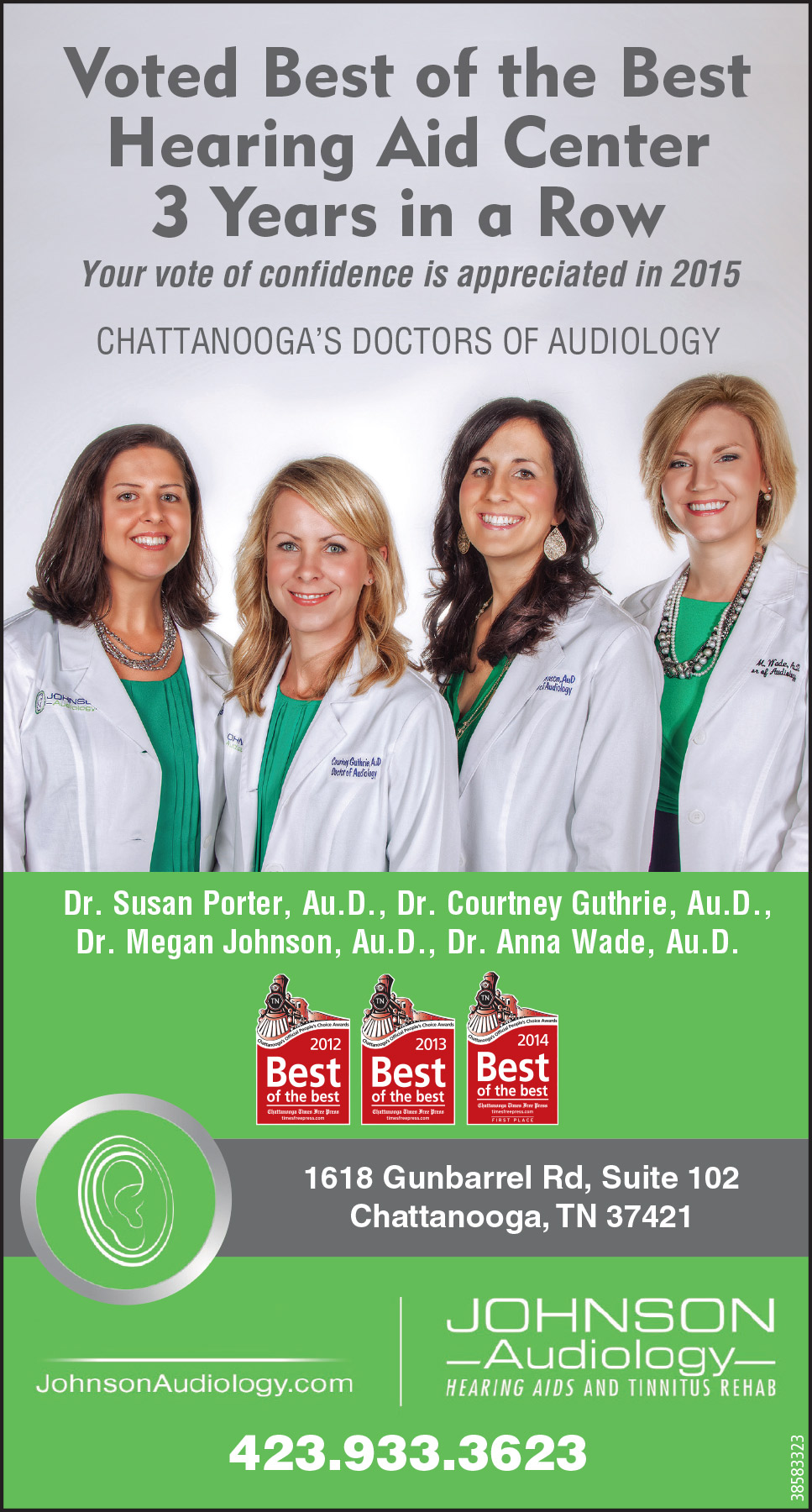Confused about hearing aids and all the newspaper ads with headlines claiming "Free, Free, FreeEverything absolutely free! Free hearing tests and free exams! Free trials and free service!"?
The advertising is misleading: It refers to limited-time specials and deals that offer "huge savings" to people who want to try new technology backed by a "100-percent money-back guarantee." These kinds of ads saturate the daily newspaper.
Why don't companies make it simple and provide you with honest, relevant information about the solutions you seek without the hype? In a world filled with hearing-aid options and so many advertisements that all promise the "best price" for the "smartest and most convenient product," it can be overwhelming searching for a hearing aid that is right for you.
Johnson Audiology shares simple steps to help patients find success with hearing aids.
1. Patient: Evaluate yourself. Are you ready to commit to hearing better? What is the driving force for you to pursue hearing aids? Often family members encourage their loved ones to do something anything -- about their hearing. Family support and patience is vital to a patient's overall success with amplification. The patient has to be ready to commit to their part of the circle of success: Patients are responsible for wearing hearing aids daily and maintaining the cleanliness of their devices.
2. Audiologist: Patients need to be sure they are working with a certified audiologist who is well trained and educated in the field. "At Johnson Audiology, all of our audiologists have obtained a doctorate degree, pursuing the highest level of education in the field," Dr. Megan Johnson said.
Once a patient is ready to pursue amplification, the only thing left to do is find an audiologist.
It is the audiologists' job, and pleasure, to guide you through the process of finding the right hearing aid for you. Don't feel like you have to be an audiologist yourself to make the right decision. Audiologists spend years learning about technology and the auditory system in order to fit patients appropriately. "The field of audiology is about helping people with a medical problem overcome an invisible disability and not just selling a hearing device for a cheap price," said Dr. Susan Porter. "The fitting/counseling/follow-up care a patient receives is also just as significant in this process and should not be compromised."
When discussing how to ensure patients receive this level of care, Johnson emphasized that it begins with creating an exceptional patient care environment where patients feel comfortable and can collaborate with their audiologist. "We work with patients individually to be sure they are wearing the best device to help their communication needs.
"Our patients are the ones to assure us they are hearing better and have improved [their] quality of life," she said. "Our protocol is to listen to our patient's perspectives, to use advanced verification technology and to perform outcome measures to determine hearing aid success."
3. Hearing Aid: There are countless manufacturers of hearing devices available on the market. Often, devices purchased online or through magazines are personal sound amplifies as opposed to hearing aids. These personal sound amplifiers differ from hearing aids, which are Food and Drug Administration-approved Class II medical devices.
"Something all patients should know is a hearing aid is designed to be programmed in our office and we physically need your ears here to program it correctly," according to Dr. Courtney Guthrie.
Another consideration is manufacturers use different sound- processing strategies, and perceptually the patient may prefer the sound quality of one device over another.
If an audiologist works with multiple manufacturers, it allows the audiologists to select the most appropriate hearing device for the patient. "Individual lifestyles and listening situations will vary," she explained. "A product is not necessarily the best for you simply because of the advertised claim or because of the weekly discount." When we stop to think about all the "discounts" on hearing aids and the "free" evaluations, it makes you wonder: If the professional does not value their service, then why should you?
If hearing aids are priced fairly to begin with, then exorbitant discounts are not necessary. "Would you not like to pay the same price as other patients?" she explained.
Ethically, there is comfort in knowing the price and treatment is equal and fair amongst all patients. "If someone is offering a free hearing test, the best price or cheapest hearing aids, they are essentially taking out two key components of the circle of success, leaving the patient ultimately responsible for solving their hearing problem," Guthrie added. "This promise of best price also now forces the patient to call around to different hearing aid centers asking for their lowest price on service and product."
"Would you choose your cardiologist or dentist based on the lowest cost available?" Porter asked. "Of course not!
"Therefore, no other medical treatment should be based on price alone."
The team at Johnson Audiology encourages all patients to read between the lines and ask questions about what ads are promising. "If you are drawn in by a low price for a set of hearing aids, don't be surprised if you are in the market for a better hearing aid or provider within the next one to two years," Porter said. Underspending and overspending can both be a waste of money. It is important to remember those hearing aid advertisements promoting a deep discount on a new hearing aid may not be touting the specific type and model that is right for you.
Trust the audiologists at Johnson Audiology whose education, training and devotion to patient care is unmatched. At Johnson Audiology finding the right hearing aid is as easy as 1-2-3.
Noteworthy:
"The field of audiology is about helping people with a medical problem overcome an invisible disability and not just selling a hearing device for a cheap price," said Dr. Susan Porter of Johnson Audiology.
More Information
Johnson Audiology is at 1618 Gunbarrel Road, Suite 102. The staff provides diagnostic hearing evaluations, hearing aids, consultations, hearing aid adjustments and repairs to patients ages 10 and older. For more information about the business's services, to schedule a consultation or to reserve a seat for lunch-and-learn classes, call 423-933-3623 or visit johnsonaudiology.com.

